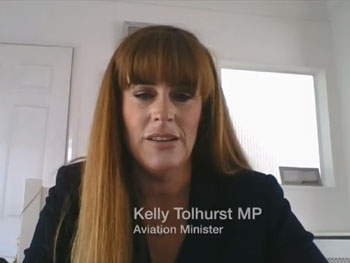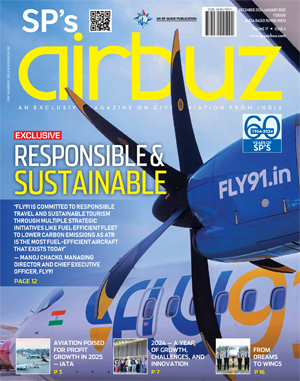FIA Connect

Focus on diversity through the pandemic, women leaders stress

FIA Connect also witnessed a dedicated panel discussion with women leaders hosted by the Women in Aviation and Aerospace Charter (WIAAC) focusing on diversity and inclusion as the industry starts to recover from COVID-19. While acknowledging that maintaining diversity and inclusion goals might be difficult as workforces reshape during the COVID-19 pandemic, industry leaders stressed that the issue must remain a priority to prepare organisations better for the future.
“As we start to recover from the impact of the pandemic, gender balance remains a vitally important issue. We believe it is more important than ever to highlight its importance as companies in the sector look to restructure in response to the crisis. Diverse, forward-looking and collaborative workforces will be integral in helping organisations to recover and face the future with confidence,” said Jacqui Sutton, Co-Chair of the WIAAC Steering Board.
“We believe it’s more important than ever to highlight this subject as companies in the sector look to restructure in response to the crises. Diverse, forward-looking, and collaborative workforces, we believe, will be integral in helping organisations to recover and face the future with confidence,” said Rolls-Royce Chief Customer Officer for civil aerospace, Jacqui Sutton, who moderated the panel on behalf of the charter.
“The whole world has plunged into crisis and our industry is one of hardest hit,” added Adefunke Adeyemi, Regional Director for Advocacy and Strategic Relations for Africa for the International Air Transport Association (IATA). She acknowledged the numerous furloughs but expressed the belief that the industry is resilient and will adapt through strong communications and an understanding that industry stakeholders share in the struggles. Given those struggles, she said IATA has also shifted its goals toward fostering inclusiveness and diversity through mentorship and promotion from within.

She also highlighted that IATA initiatives have seen successes on that front like the “25by2025” campaign launched in September of 2019. Participating airlines make a voluntary commitment to increase the number of women in senior positions by either 25 per cent or ensure women fill 25 per cent of those jobs by 2025. By the end of last year, nearly 60 airlines had committed.
“We believe it’s more important than ever to highlight this subject as companies in the sector look to restructure in response to the crises. Diverse, forward-looking, and collaborative workforces, we believe, will be integral in helping organisations to recover and face the future with confidence,” said Rolls-Royce Chief Customer Officer for civil aerospace, Jacqui Sutton, who moderated the panel on behalf of the charter.
However, “with the pandemic, everything came to a screeching halt,” she lamented. As a result, IATA will not concentrate on the metrics involved as much for the time being, but rather on efforts such as its “Mosaic” initiative designed to foster inclusion and diversity. It designed that effort to encourage the promotion of women who meet criteria and have merit, as well as encourage others to achieve with the help of coaching and mentoring.
Kelly Tolhurst MP, the UK Department of Transport minister for aviation, maritime, and security added that the topic remains as urgent now as ever before, pointing to statistics showing that women pilots represent just 6 percent of the total pilot population. “While piloting is just one position, it represents wider challenges throughout the industry.”
Victoria Foy, CEO of UK-based Safran Seat GB, agreed that like other companies, Safran has faced a wave of changes during the pandemic that has made the ability to keep diversity and inclusion top of mind challenging. However, she added that Safran has managed to maintain a focus through several means, including outreach and surveys to ensure an understanding of concerns during the pandemic.
Long-term though, data can benchmark the gaps and areas that need targeting, whether at the applicant level, through recruitment, or through promotion and organisations should rely on multiple sources to determine whether they have made a difference, including examining the executive suite to make sure good role models occupy it, added Martine Gagne, Chief Technology Officer for Meggitt.





